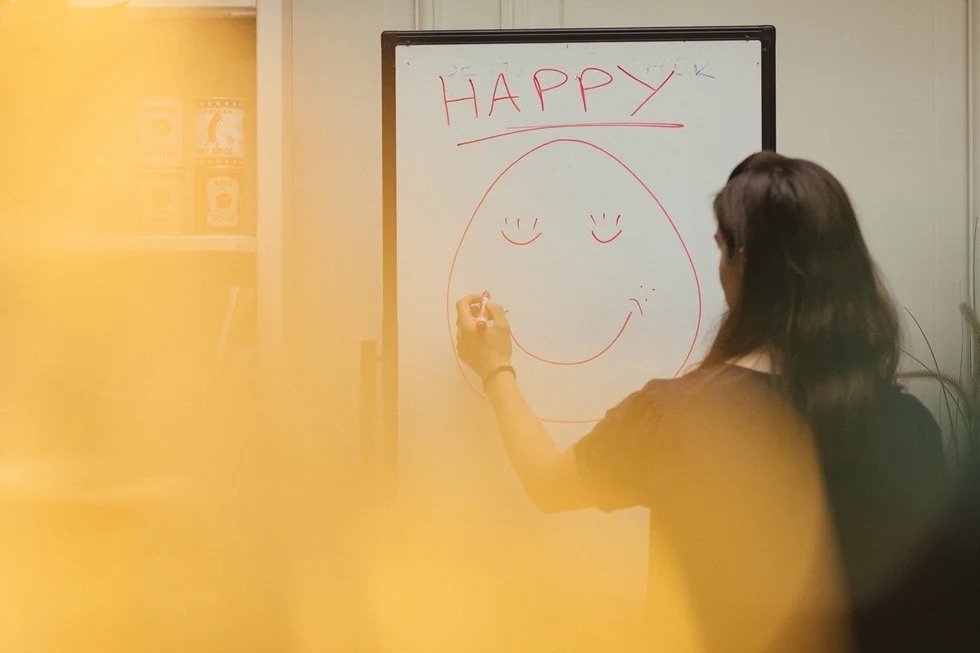Advice for people pleasers: Breaking free from being “too nice” at work
12. 12. 2024
3 min.


US Journalist Intern
Have you ever found yourself being too nice? Taking on tasks and projects at work that aren’t really your responsibility? Maybe you’re the one always taking notes in every meeting, putting in extra hours, or working on weekends. If this sounds familiar, you might be suffering from the consequences of being a people pleaser.
That pang of guilt, the way your heart races every time you try to say “no” because you don’t want to disappoint anyone… It’s exhausting. Perhaps you tell yourself, “It’s better to agree than to confront it,” or “I don’t want to upset my boss … and more importantly, I can’t risk losing my job!”
But those fears and inner voices are taking control, preventing you from setting healthy boundaries. What would happen if you started taking back control, agreeing only to tasks that align with your goals?
Why is it so hard to say no?
Saying no can be particularly challenging for people pleasers because “as humans, we don’t like to be uncomfortable,” says Liane Davey, psychologist, author, public speaker, and business strategist. She explains, “For people who are very aware [of] other people’s feelings, one of the biggest sources of discomfort is to let someone else down or to make them uncomfortable.”
Sometimes, people pleasers might find themselves agreeing to tasks simply out of habit. Davey points out, “Every time you say no to something, you’ve created the capacity to say yes and invest fully in something else. And every time you say yes to something, you’ve reduced your capacity to fully commit. So if we can understand every yes and every no has a flip side, then it’s less knee-jerk or less of a default to just say yes.”
The risks of always saying yes
The habit of always saying “yes” can’t be changed overnight, especially for those who have grown up in environments where this behavior is rewarded. Changing this mindset requires time, patience, and a conscious effort. But ignoring the problem can lead to serious consequences, including:
- Burnout: Constantly taking on additional responsibilities at the expense of your own well-being can leave you physically and emotionally drained.
- Frustration: When your needs are consistently sidelined, it breeds resentment and dissatisfaction.
- Loss of Identity: Always prioritizing others’ goals can make it difficult to focus on your own ambitions and values.
How to break the cycle: Practical tips for people pleasers
For young professionals especially, the belief that saying yes to everything will open doors often backfires. Constantly prioritizing the needs of others over your own can lead to exhaustion and diminished self-worth. Learning to say “no” is not selfish; it’s a way to set healthy boundaries that protect your time, energy, and mental well-being
Davey offers actionable strategies to help people pleasers make this shift:
1. Reflect on your motivations
“You have to understand for yourself: when I am saying yes to something that is taking me away from my job, taking me away from my priorities, what itch is that scratching for me?” says Davey. By examining why you feel compelled to say yes, you can identify deeper needs or fears driving your decision.
2. Negotiate the scope of your yes
Instead of committing fully, consider offering a partial yes. For instance, agree to assist on a project but set boundaries on how much time you’ll dedicate to it. “Understanding why you’re saying no and negotiating on the scope of the yes is another very valuable technique,” Davey explains.
3. Build confidence with small steps
Start with small boundaries—decline a minor task or reschedule something non-urgent. These small victories can help you grow more comfortable with setting boundaries over time. Davey suggests starting to build your emotional muscle by saying no in small ways.
The benefits of setting boundaries
Saying “no” might feel uncomfortable at first, but the long-term benefits are worth it:
- Improved mental health: Setting boundaries reduces stress and anxiety, helping you maintain a healthy work-life balance.
- Increased productivity: By focusing on tasks that align with your goals, you’ll work more effectively and achieve better results.
- Greater respect from peers: When you communicate assertively and prioritize your responsibilities, colleagues are more likely to value your time and contributions.
Key points to keep in mind
If you often prioritize others’ needs over your personal goals, it’s time to reassess your habits.
- Every yes comes with a cost: Each time you agree to something outside your priorities, you sacrifice the opportunity to focus on tasks that truly matter.
- Practice self-awareness: Ask yourself what’s driving your decision to say yes. Are you motivated by genuine interest, or are you afraid of disappointing others?
- Set clear boundaries: Establish limits on what you’re willing to take on and communicate these boundaries respectfully to colleagues and supervisors.
People pleasers will likely find it difficult to break the habit of being “too nice” at work—and that’s ok! Learning to say “no” and setting healthy boundaries will take time, but the mental, emotional, and professional benefits it will yield will be well worth it. Remember that every “no” is an investment in your time, energy, and future success.
Photo: Welcome to the Jungle
Follow Welcome to the Jungle on Facebook, LinkedIn, and Instagram and subscribe to our newsletter to get our latest articles every week!

Viac inšpirácie: Náš vzťah k práci

There’s no place like home: Does relocation hurt productivity?
Relocating often brings homesickness, but it’s part of the journey. Here’s how to embrace the change and make the most of it.
22. 10. 2024

Should you take your office crush to the next level?
Is an office crush worth the risk, or more damaging to your career and reputation than you think?
09. 10. 2024

Young workers on unpaid internships: Was it worth it?
While internships build skills and connections, unpaid ones can limit opportunities for those who can't work for free. Is it fair?
12. 9. 2024

Sleeping less to succeed more: Do CEOs sleep as little as we think?
In today's fast-paced corporate world, a common belief is that successful leaders, particularly CEOs, need less sleep to achieve their goals.
26. 8. 2024

The do's and don'ts of working remotely on vacation
Can you truly combine work and vacation? With remote working becoming more popular, many are exploring their options.
18. 7. 2024
Novinky, ktoré to vyriešia
Chcete držať krok s najnovšími článkami? Dvakrát týždenne môžete do svojej poštovej schránky dostávať zaujímavé príbehy, ponuky na práce a ďalšie tipy.

Hľadáte svoju ďalšiu pracovnú príležitosť?
Viac ako 200 000 kandidátov našlo prácu s Welcome to the Jungle
Preskúmať pracovné miesta